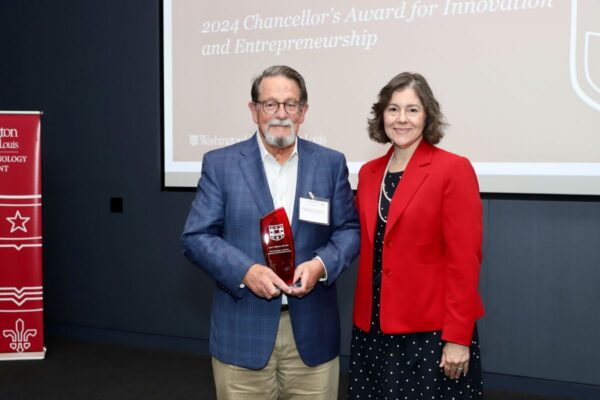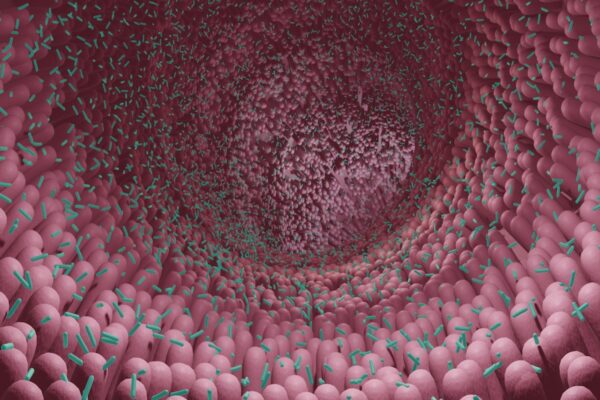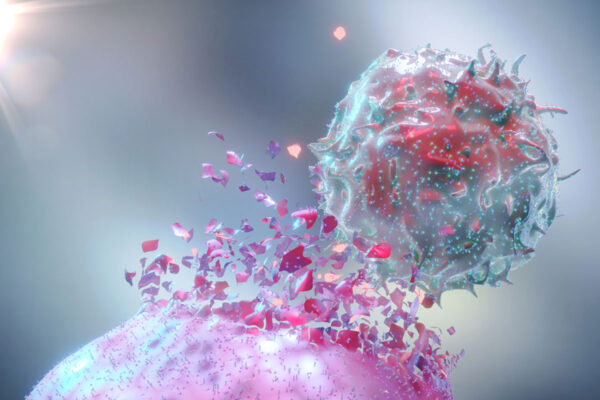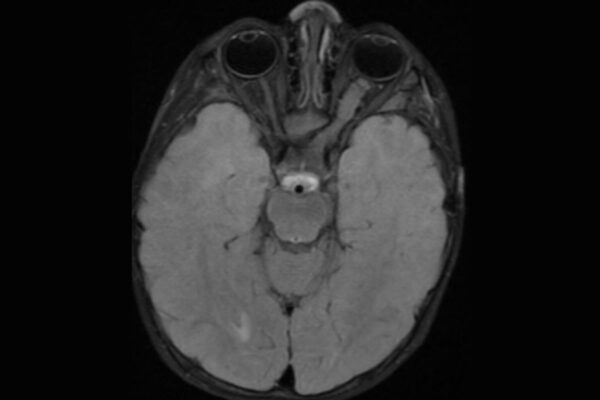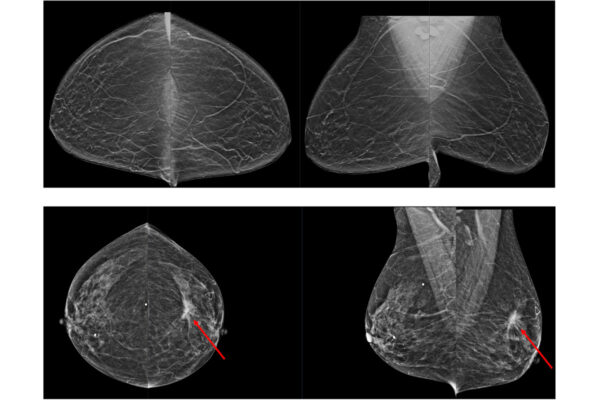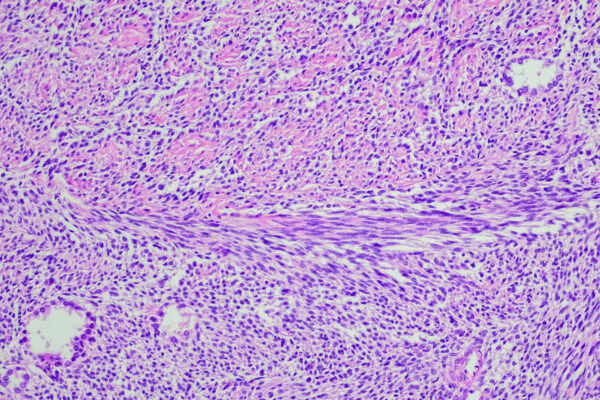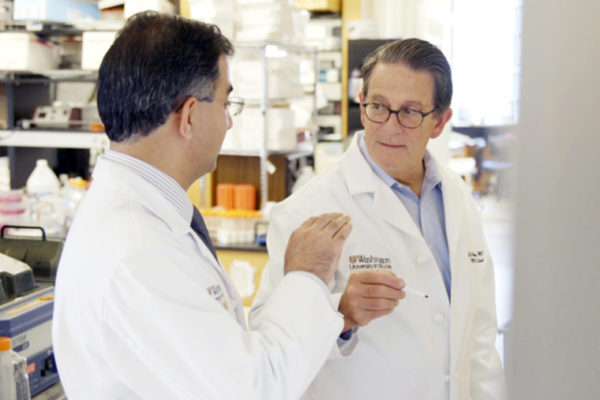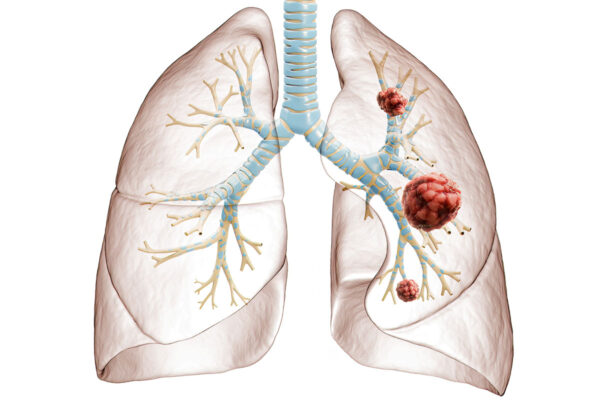DiPersio receives innovation award
John F. DiPersio, MD, PhD, the Virginia E. and Sam J. Golman Endowed Professor of Medicine at Washington University School of Medicine in St. Louis, has received the Chancellor’s Award for Innovation and Entrepreneurship for his research contributions.
Gut bacteria boost immune response to fight tumors
Researchers at Washington University School of Medicine in St. Louis have found that a strain of gut bacteria can boost immune responses and enhance cancer immunotherapy to fight sarcoma tumors in mice.
Chemo for glioblastoma enhanced by tapping into cell’s daily rhythms
A study from biologists and clinicians at Washington University in St. Louis reports that glioblastoma cells have built-in circadian rhythms that create better times of day for treatment.
$5 million grant supports innovative immunotherapies against blood cancers
Researchers at the School of Medicine have received a $5 million grant from the Leukemia & Lymphoma Society to support research aimed at developing new immunotherapies for different types of blood-based cancers.
Karam named head of radiation oncology department
Sana D. Karam, MD, PhD, a renowned radiation oncologist widely known for cutting-edge cancer research that combines radiation therapy and immunotherapy to treat head and neck, and pancreatic tumors, has been named the James S. McDonnell Professor of Radiation Oncology and head of the Department of Radiation Oncology at the School of Medicine.
Epilepsy drug prevents brain tumors in mice with NF1
Researchers at Washington University School of Medicine have discovered that an FDA-approved epilepsy drug can prevent or slow the growth of NF1-linked optic gliomas in mice, laying the groundwork for a clinical trial.
AI-assisted breast-cancer screening may reduce unnecessary testing
In a recent study, researchers at Washington University School of Medicine in St. Louis and Whiterabbit.ai showed that artificial intelligence assistance potentially could improve breast-cancer screening by reducing the number of false positives without missing true positives.
Some sarcoma patients improve with T cell immunotherapy
A clinical trial led by School of Medicine researchers has shown that a T cell immunotherapy — in which the patients’ own T cells are genetically modified to attack and kill cancer cells — is effective in treating some patients with rare cancers of the body’s soft tissues. The study focused on the rare cancers synovial sarcoma and myxoid round cell liposarcoma.
DiPersio honored with E. Donnall Thomas lectureship
John F. DiPersio, MD, PhD, the Virginia E. and Sam J. Golman Professor of Medicine at the School of Medicine, delivered the E. Donnall Thomas Lecture in San Antonio at the Transplantation & Cellular Therapy Meetings of the American Society for Transplantation and Cellular Therapy and the Center for International Blood and Marrow Transplant Research.
AI may predict spread of lung cancer to brain
A new study led by Washington University School of Medicine in St. Louis could help physicians strike the right balance when treating lung cancer patients. Scientists used an artificial intelligence (AI) method to study lung biopsy images and predict whether the cancer will spread to the brain.
Older Stories
